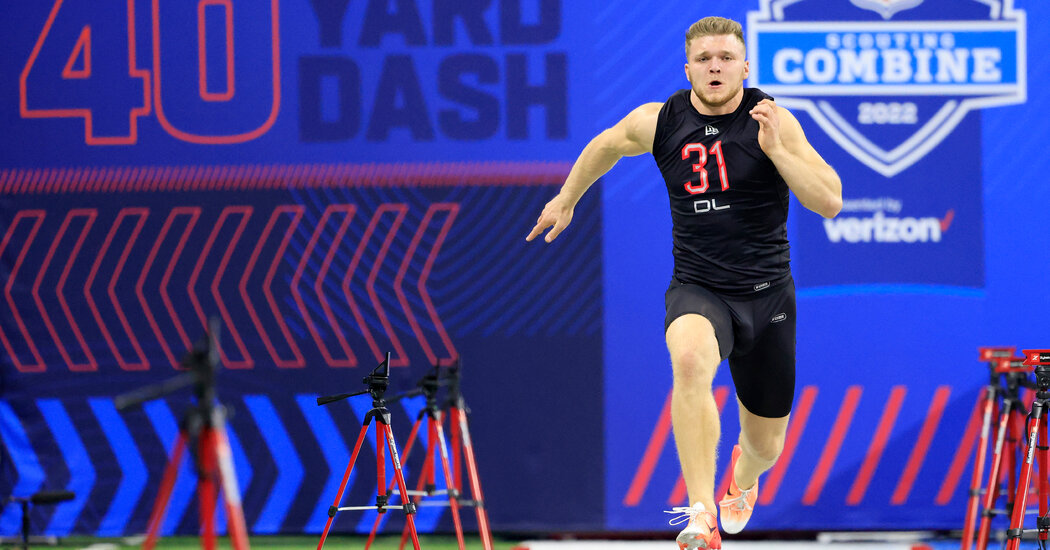
A week earlier, the players’ union had taken aim at the league and the combine, calling the event “antiquated” after agents for roughly half the 324 players who were expected to attend mulled a boycott of the workout portion, which includes drills like the 40-yard dash, in protest of coronavirus-related restrictions, which were dropped in response.
The digitization of medical records, videoconference interviews and the proliferation of other venues to scout players (at college pro days and private workouts), which gained leaguewide acceptance during the pandemic, chipped away at the need to assemble here.
While coaches and general managers said they would still use video calls to interview players, Baltimore Ravens General Manager Eric DeCosta said he relied on in-person interactions.
“If you really talk to them about their personalities and who they are, how they see themselves, their goals, their dreams — for us to get a chance to assess things like growth, mind-set, motivation, ability to overcome adversity, resiliency and things like that, for me, that’s the biggest thing,” he said.
Trent Baalke, the general manager of the Jacksonville Jaguars, who again have the No. 1 pick in the draft, agreed. “When you get to touch and feel and talk to someone directly, I think it’s a huge benefit to be here,” he said.
Ryan Clark, a former N.FL. safety and an ESPN analyst who mentors a handful of prospects, including Louisiana State cornerback Derek Stingley Jr., said pro days and private workouts lacked the competition of the combine, where executives can compare players in real time.




